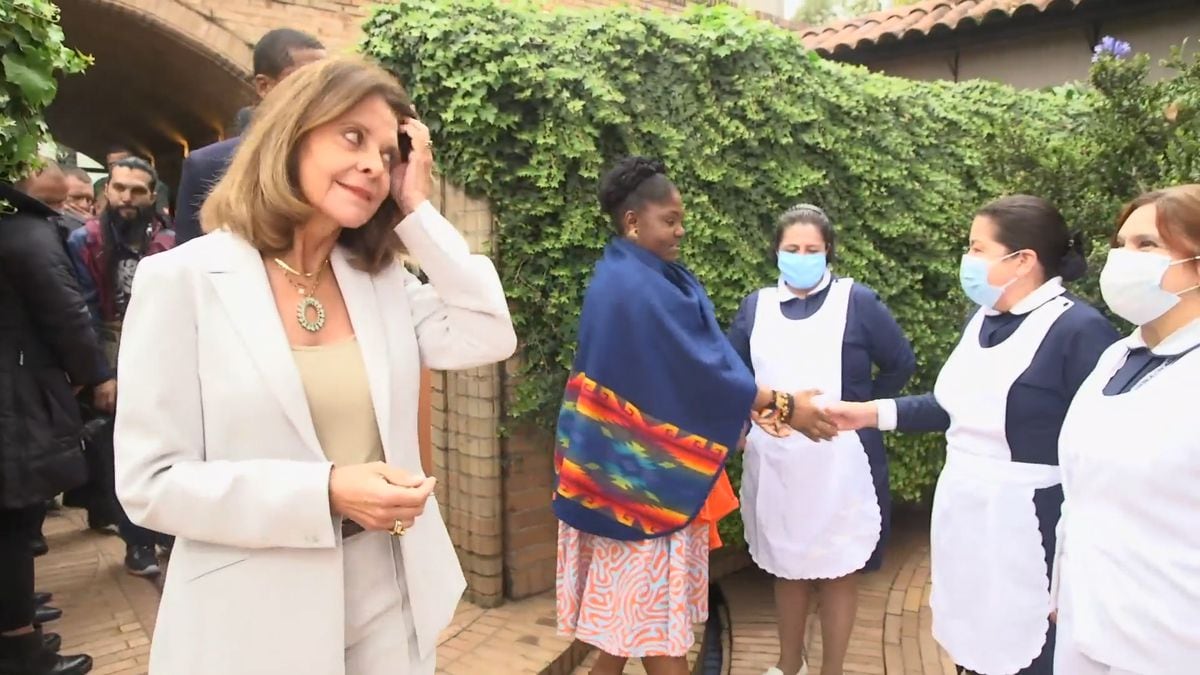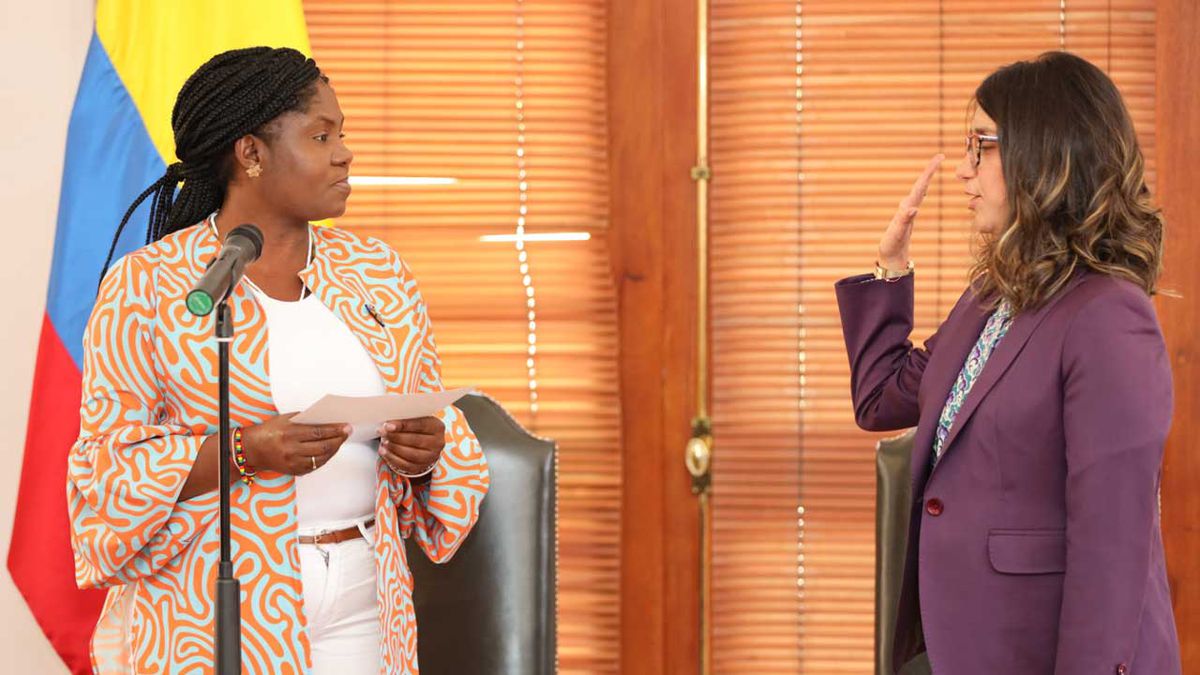Last Friday, June 24, the current vice president, Marta Lucía Ramírez, and the elected vice president, Francia Márquez, met as part of the administrative junction.
Everything happened in the midst of the cordiality typical of these meetings.
However, an image posted on networks by former Senate candidate Gilberto Tobón captured the moment when Francia Márquez shook hands with the domestic employees of the Vice Presidential House, while Marta Lucía Ramírez omitted to greet them and continued walking.
The image published by Tobón with the caption "Pedagogy of the importance of equality from the joint" generated all kinds of reactions in the media and social networks.
Given the number of comments that disapproved of his actions, Ramírez defended himself with a tweet stating that "sowing hatred is the sport of some" and added that "the new vice president will have the opportunity to get to know each of the girls who accompany us better. in the office and hug them like I did before.”
It can be well understood that the vice president has been working with the staff for four years and that since it is Francia Márquez who has just arrived, she introduces herself and says hello.
However, Ella Ramírez's gesture not only marks physical but also social distance between her and her maids.
For her part, Francia Márquez relates to women from close proximity.
The elected vice president reaches this moment in history after a path as a social and environmental leader, after being a domestic worker herself and being in that place of the invisible, "the nobody", to which she refers so much.
This image of Vice President Francia Márquez, a black woman from the Colombian Pacific,
greeting the white-mestizo domestic employees of the Vice Presidential House graphically represents the absolute inversion of the hegemonic ways of seeing power and political exercise in our country.
Its value is incalculable.
Ramírez's tweet shows us that he usually refers to the employees of the service as "girls";
he had already done so in the meeting when he pointed to the service employees he called them “the girls of the house”.
This specific act offers the opportunity to put on the table the issue of classism and machismo entrenched in our country and that increasingly finds more sophisticated and intangible ways, which allows it to perpetuate itself and be easy to deny by those who exercise it.
If they were men, for example, they would be "the gentlemen of the domestic service" and not "the children of the house".
The infantilization of the other is one of the forms of expression of that classism.
An infant is not autonomous, he needs an adult, he is not an equal interlocutor.
It is understood, in that sense, as inferior.
And it is this idea of inferiority that is transferred to the relationship with those who are seen as less due to their social origin or the work they do.
Calling a woman a girl denies her capacity for agency, reduces it and, in any case, is a way of signaling that she is inferior.
At 38 years old and coordinating an academic program at a public university, I have heard countless times colleagues and bosses refer to me as a "girl" in work settings.
To call the service employees “girls of the house” is to refer to their work with euphemisms.
We only use euphemisms to mitigate what we consider socially inferior,
However, it is not just about Marta Lucía Ramírez, it is about an entire society that has refined its ways of keeping social distance under control.
In cases like this, behind the infantilization that we have been taught to see as a sign of affection, a resounding statement is hidden: "We are not the same, the relationship between us is vertical and, of course, I am on top."
In essence, adults who work as adults and have adult responsibilities are the same.
However, the logic of classism creates the need to nullify such equality and operates on the language used to name.
Not everything is sorrow, this situation has put a mirror before our eyes and invites us to think about ourselves, to review our own relationships with others, to question the apparent innocence of our words and what they reveal about our ways of seeing the world.
Yihjan Renteria Salazar
is a writer and professor of Discourse Analysis at the Technological University of Chocó.
Subscribe here
to the EL PAÍS newsletter on Colombia and receive all the key information on the country's current affairs.






/cloudfront-eu-central-1.images.arcpublishing.com/prisa/TAKGL2743RAYZGDHZPXGO3HNMY.jpg)
/cloudfront-eu-central-1.images.arcpublishing.com/prisa/POAZB4KWIJBM7FK3PULSOJEJAA.jpg)
/cloudfront-eu-central-1.images.arcpublishing.com/prisa/L6TCOQ5HGZCWTOW6YNBMMGDKBA.jpg)
/cloudfront-eu-central-1.images.arcpublishing.com/prisa/T6UWBRQOZ7APE4TZ43LFSSHBRA.jpg)